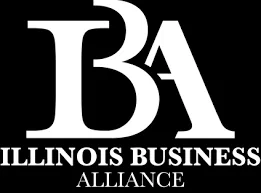April 27, 2020 – The Illinois Business Alliance, a nonprofit business league, has again urged Gov. J.B. Pritzker to pull the progressive income tax amendment from the November ballot after the governor announced an extension of the state’s stay-at-home order with some modifications.
The General Assembly passed the amendment in 2019. If approved by voters in November, the amendment would allow for a graduated income tax structure with higher rates for people who earn more money.
Last week, the governor announced that he will extend the order until May 30, keeping many nonessential businesses shuttered in an effort to reduce the spread of COVID-19, the disease caused by the new coronavirus that emerged in late 2019.
Jared Carl, president of the Illinois Business Alliance, said some businesses won’t survive the extended shutdown.
“It’s heartbreaking to watch what’s happening to businesses and to workers,” he said. “It’s terrible what our state is going through, yet the governor thinks it’s still a good idea to raise taxes on businesses.”
With state revenue expected to fall, Pritzker said the state could face a budget shortfall of more than $7 billion. Pritzker, who has championed the progressive tax as a fairer method for taxing income, recently told reporters: “Illinois needs it now more than ever.”
The amendment, which passed the General Assembly in 2019, would remove Illinois’ existing flat income tax, allowing for a $3.7 billion dollar income tax hike, which would raise taxes on around 100,000 small businesses across the state, Carl said.
Pritzker has said the progressive income tax amendment would increase taxes by more than $3 billion and result in modest income tax reductions for about 97 percent of taxpayers. Business groups have said the progressive income tax will hurt small businesses, which they said could affect the economy and push more people to move out of Illinois.
Carl said raising taxes would be a clear policy mistake given the COVID-19 recession.
“He has said we are in a prolonged recession and you don’t raise taxes during a recession,” Carl said. “We know that the governor understands the economic magnitude of the shutdown.”

